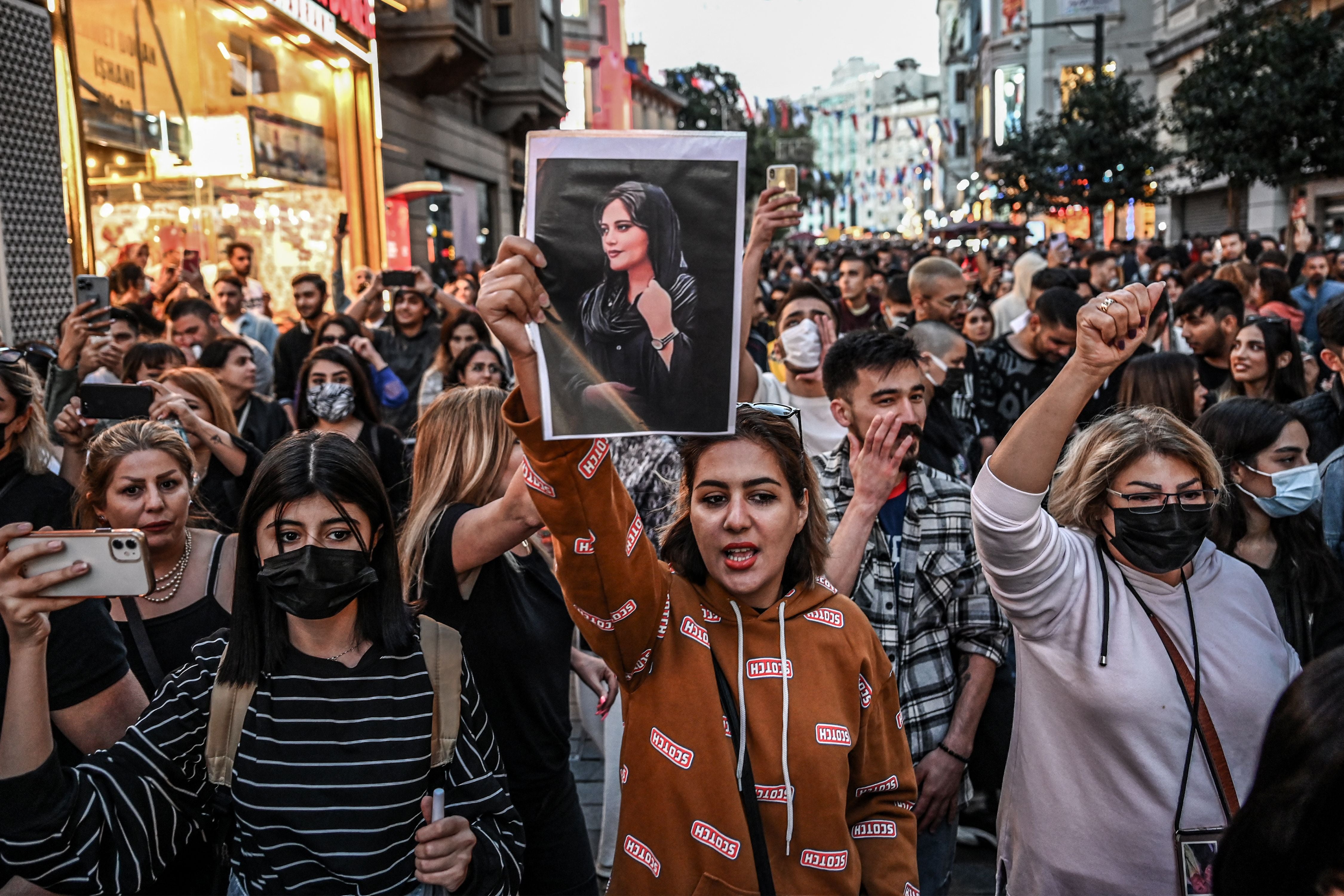War between Israel and Iran is off (for now) – but Iranians are still suffering
Following a series of retaliatory attacks, the risk of a wider conflict between Israel and Iran has dissipated, writes Camelia Entekhabifard. But the key to long-term peace is regime change in Iran – and Iranian people need the West on their side


Since the Islamic Republic of Iran and Israel started their conflict, three stressful weeks have passed. Just last Friday, Isfahan – the city Iranians call “Half of the World” and which represents the soul of Iranian art – awakened to the sound of explosions.
Israeli drones were launched at the city in response to the surprising attack by the Islamic Republic, which fired more than 300 missiles and drones at Israel. This was, in turn, retaliation for airstrikes on the Islamic Republic’s consular building in Damascus.
According to intelligence sources, the Israeli fighters’ attack on the consulate in Damascus killed seven commanders of the Islamic Revolutionary Guards Corps (IRGC). During the weeks that followed, the Islamic Republic promised a “harsh revenge.”
Missiles and drones travelled 1,500 kilometers to reach the Holy Land or Beit al-Maqdas (as it’s called in Arabic). But jets from the US, France, Israel and the UK were already waiting – and brought almost all of them down before they could do any damage.
Just a few missiles passed through the Iron Dome and got to the bases they targeted. According to US and Israeli officials, they caused minimal damage. Israeli officials showed two shallow pits and said that the Islamic Republic’s missiles had only superficially hurt two of their military bases.
It appears that it was with the same mindset that the Islamic Republic officials said they had shot down “micro aerial vehicles” over Isfahan with air defence missiles. They denied that these missiles had hit the ground.
The Islamic Republic News Agency reported that their air defences had been activated over few Iranian cities including Tabriz – but they didn’t blame Israel and reassured people of a completely ordinary situation.
There are still worries about Iran and Israel’s confrontation spreading, but an official in the region told CNN that the direct attacks between the countries have come to an end. But what has not ended is the suffering, hopelessness and daily troubles of 85 million Iranians who live under the shadow of the Islamic Republic’s tyrannical government.
Tens of millions of Iranians who face enough of a daily struggle to make ends meet see no reason for military clashes with Israel. High prices, unemployment, the swift and daily increase in the price of foreign currencies that directly impacts their lives and livelihoods; these are not problems that could be easily ignored. Poverty, hopelessness, disillusionment from the current situation is one thing. On top of that, there is oppression and social and political repression.
And, as millions of Iranians were nervously staring at their TV or phones to get news on the possibility of a war between Iran and Israel, the Iranian regime brought the morality police out on the streets to suppress men and women again.
In the last week, reports again show arrests and beatings by police for citizens choosing not to wear the attire preferred by the regime. The behavior shows the gap between the nation and the regime – and prepares the ground for broader repression.
This fall is the second anniversary of the largest national uprising of Iranians in the last 45 years. The uprising started after Mahsa Amini was killed in detention and brought united Iranians on the streets so that they could demand a change in the government and an end to the Islamic Republic. Widespread demonstrations all over Iran left no doubt the country was headed for a big change.
The demonstrations led to hundreds of people killed, wounded, arrested, maimed, sentenced to prison and, in a small number of cases, executed. But faced with the heavy repression that went on for days without end, the free world only issued a few statements and formal sanctions. Some foreign governments saw their interests at odds with changing the regime in Iran and considered the status quo, appeasement of the regime and encouraging reform from within as a better alternative.
This is how the revolution of the Iranian nation was stopped in its tracks, with empty promises and concurrent secret negotiations with the Islamic Republic officials. Less than two years ago, the free world refused to give a hand of help to the Iranian nation. But today, faced by a great security threat represented by the Islamic Republic, it is looking for an effective and fast strategy to contain it.
Other than targeting the drone and missile programnes, what strategy is suggested by the imposition of more sanctions to change the behavior of this regime? Sanctions have already contributed to unprecedented inflation and a weakened economy, so what is the wider plan?
If the world had heard the voice of the Iranian nation and raised a hand to help to Iranians when protests were strong, we might not be where we are today, with the people of Iran paying the price.
The key to peace in the Middle East isn’t war. Ultimately, we must realise that the key to peace is in changing the regime in the Islamic Republic. This will change things not only in Iran, but will bring fundamental changes in the region, including in Israel. Next time the people of Iran ask for help, the West should heed their call.






Join our commenting forum
Join thought-provoking conversations, follow other Independent readers and see their replies
Comments